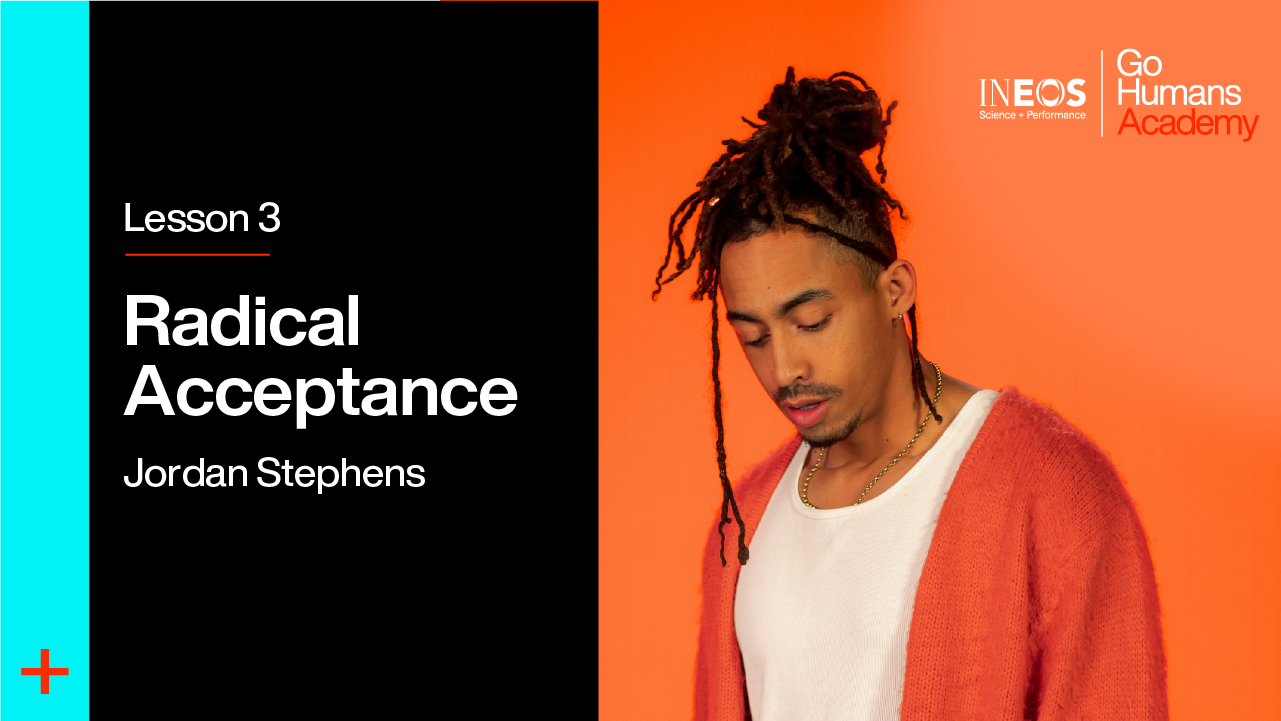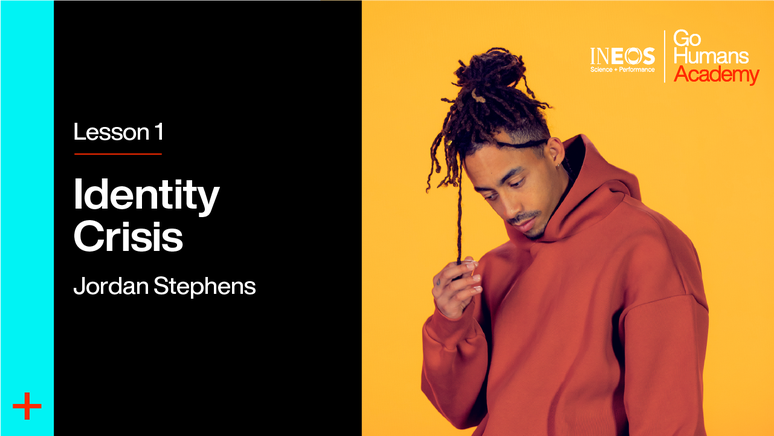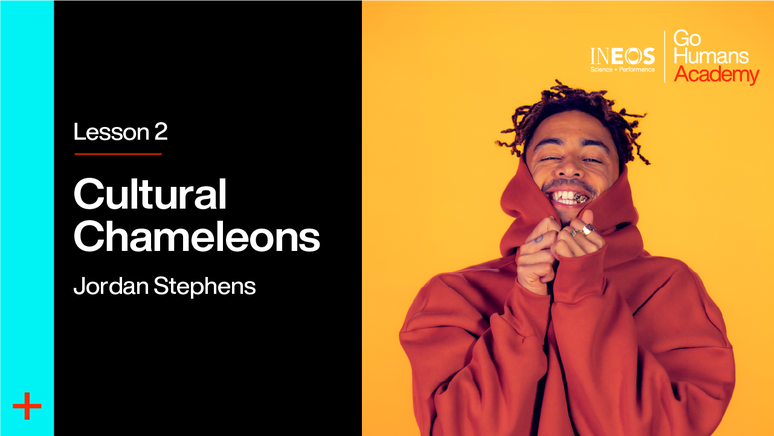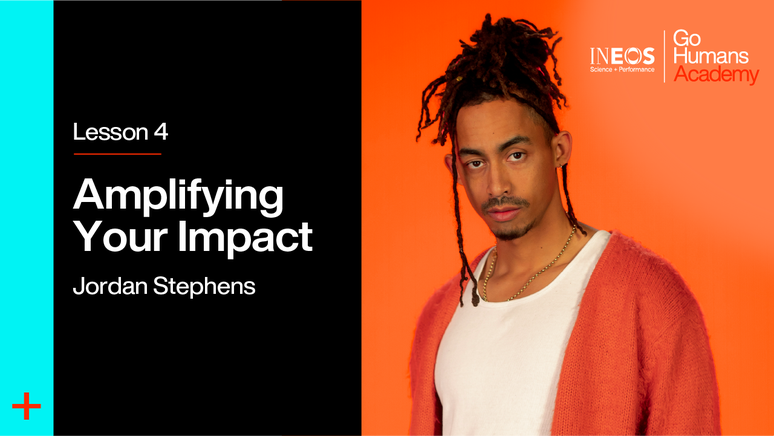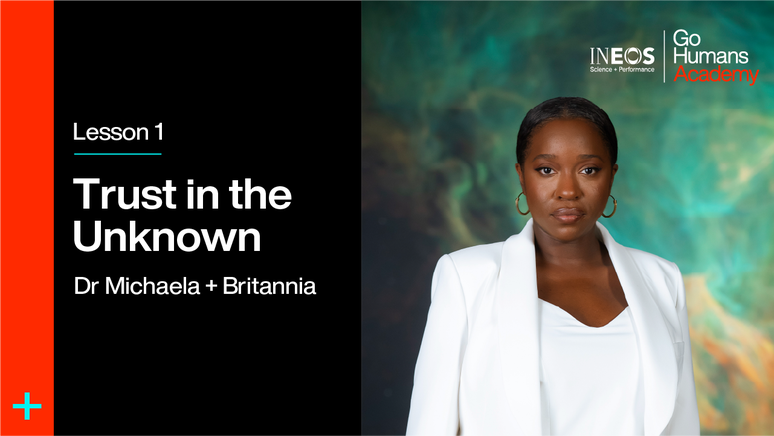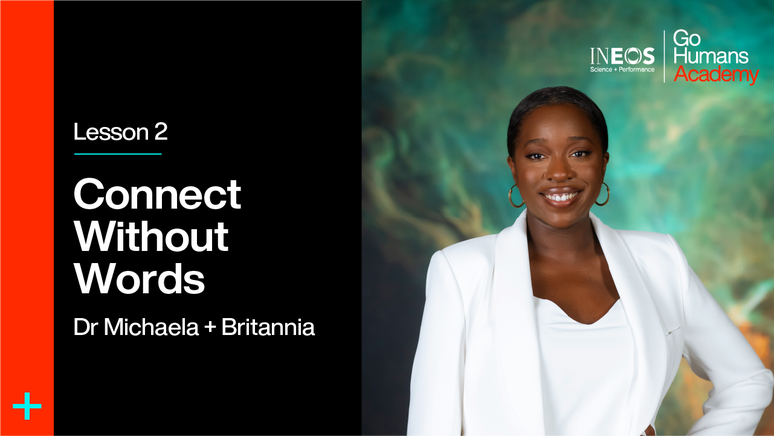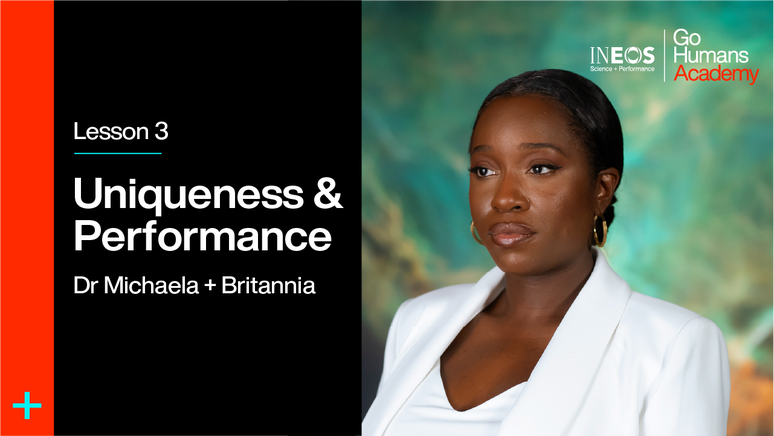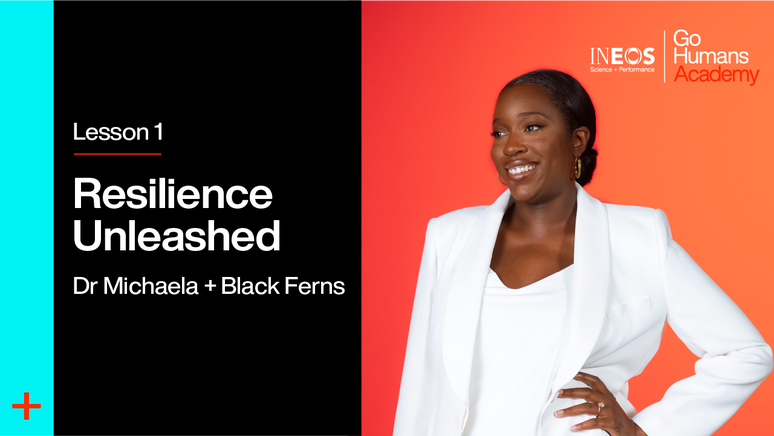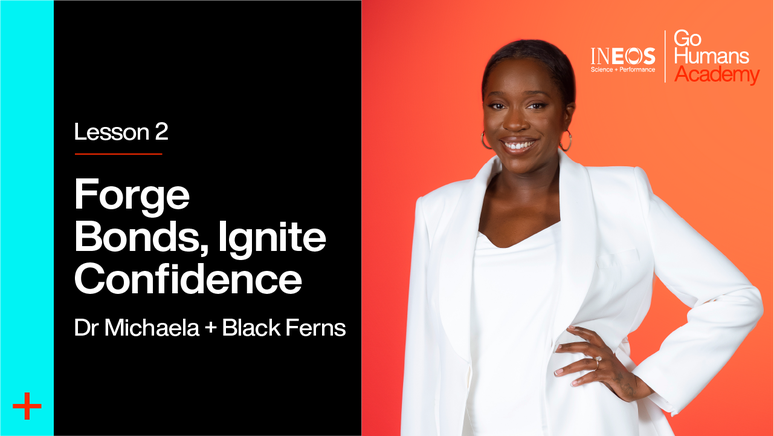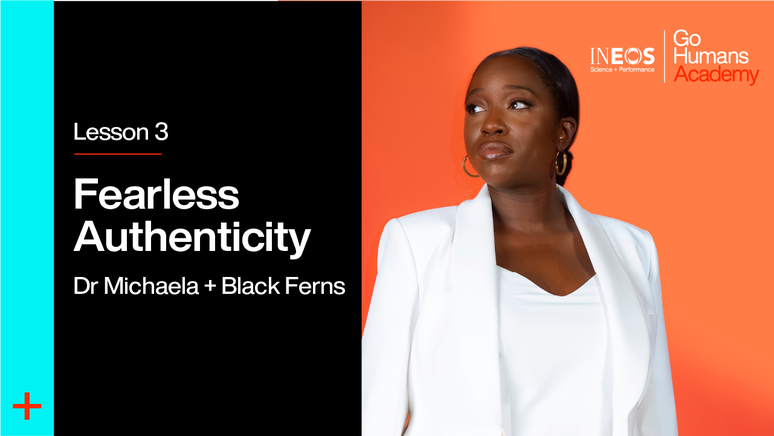Hi everyone. I'm Jordan Stevens, musician, author and mental health advocate.
I'm working with the INEOS Go Humans Academy to share my personal challenges, victories and lessons for identity.
Hopefully, you can learn something from my sessions together, so let's get underway.
I'm definitely a work in progress and every day I've got a take step to ensure I'm on top of my fear of abandonment and any lingering grief.
Our human responsibility is to put our time, energy and care into what we can control.
When I've been at my lowest or struggling with my own identity, it's always about realising that I need to focus on what's within my reach.
I once attended an emotional trauma retreat called The Bridge, and on that course, we identified six principles that I tried to live by today.
These helped me maintain balance and ground myself.
Literally, whenever I feel off, I look back at the list and I can guarantee that at least one has been neglected.
It might not be realistic to do each of these every day, but I challenge you to make a start.
After all, small daily actions can add up to big changes in the long run.
To kind of half quote the author, David Mitchell, if you feel like an action is just a tiny drop in the ocean, ask yourself, what is the ocean but a multitude of tiny drops?
It's nice to know.
I've misquoted him, but it's nearly that.
So, here they are.
- Sleep. It's tough, but aim for a full night's sleep around seven or eight hours. Our bodies and brains need to rest to function optimally.
- Nutrition. Pay attention to what's in your body. Your gut health influences your mental health and how your brain rationalises and processes the world around you.
- Exercise. It's not just about aesthetics and how you look, it's about feeling good. Exercise releases endorphins, providing mental clarity, reducing the risk of fight or flight or panic responses and improving your mood.
- Nature. Disconnecting your devices and reconnect with the natural world. There's a tranquillity there that's hard to match.
- Creativity. Use it as an outlet for self-expression, even if you don't consider yourself a creative person. Just do something which allows you to express yourself in a way that suits you and it can provide you with clarity on your sense of self. Trust me, just do it.
- Balance, Solitude and Community. Make time to engage with the people around you, but also listen to yourself to find boundaries and respect your own personal time. Sometimes a brain needs rest. These pillars are the building blocks of our identity. They help to create our emotional intelligence and build a framework to help us better understand our behaviour.
Pattern recognition is essential.
If we keep repeating actions that lead to things we don't like, we're trapping ourselves in a cycle, so it's up to you to break the cycle.
I myself have been sober for five years and the early years were tough because society can make it harder for us to make healthy choices, but it's our responsibility to create better habits that serve us.
If you feel like your world is spinning out of control, paying attention to those six pillars will have genuinely positive effects. I promise you that.
And the last piece of advice, don't be ashamed of taking care of yourself. Self-care is not selfish. It's self-parenting. It's about prioritising your well-being and protecting yourself from what life throws you away.
Never let anyone else shame you out of a healthy choice. Discipline is rooted in self-love.
Most importantly, remember to seek professional help if you need it.
If you're struggling, don't hesitate to reach out to a mental health professional. They can provide immediate support to help you navigate your feelings and develop a stronger sense of self.
And don't forget to continue our sessions in the link below or join the conversation using #GoHumansAcademy and head to ineoshygienics.com for more information and mental health resources.
